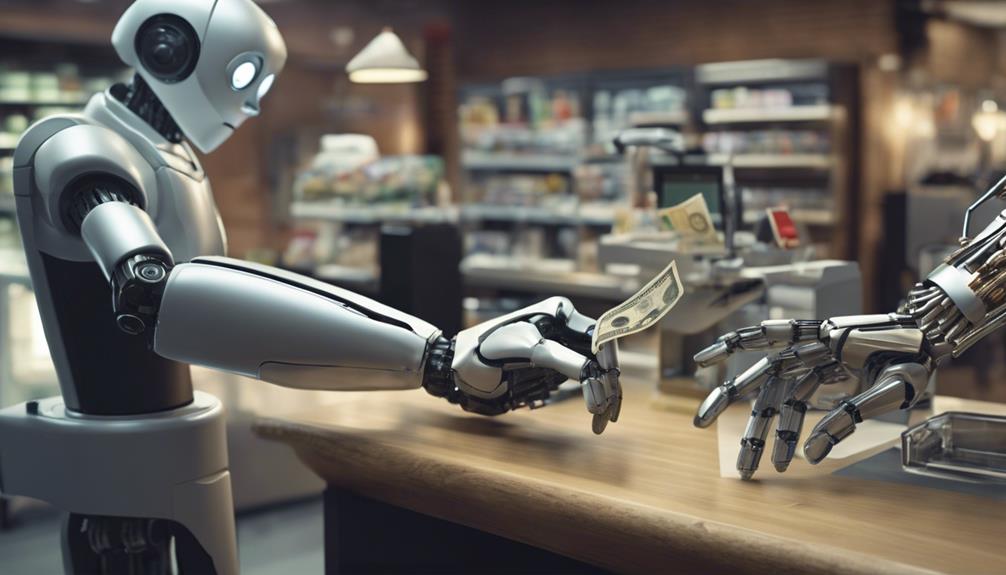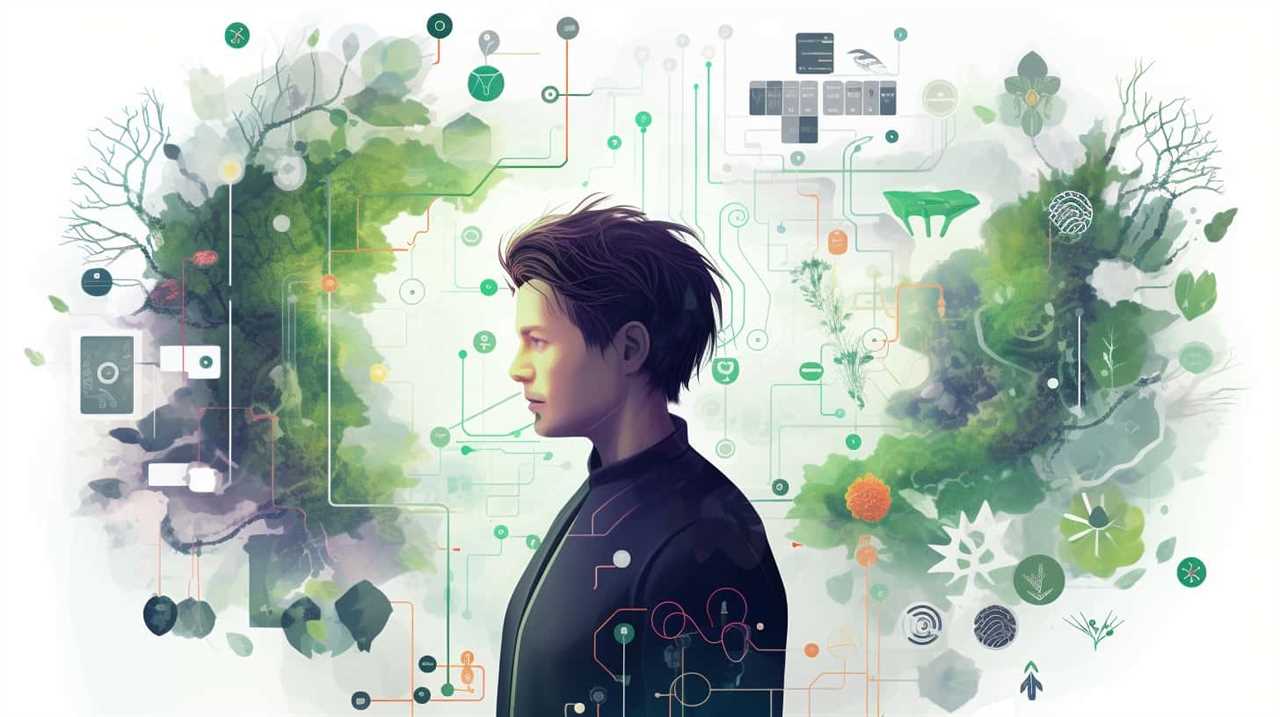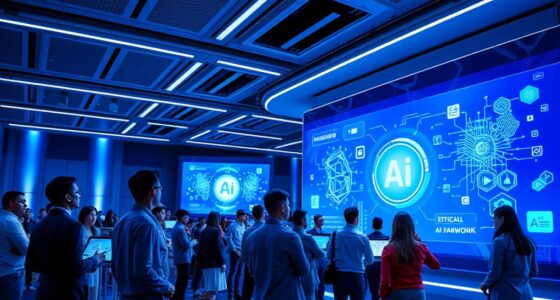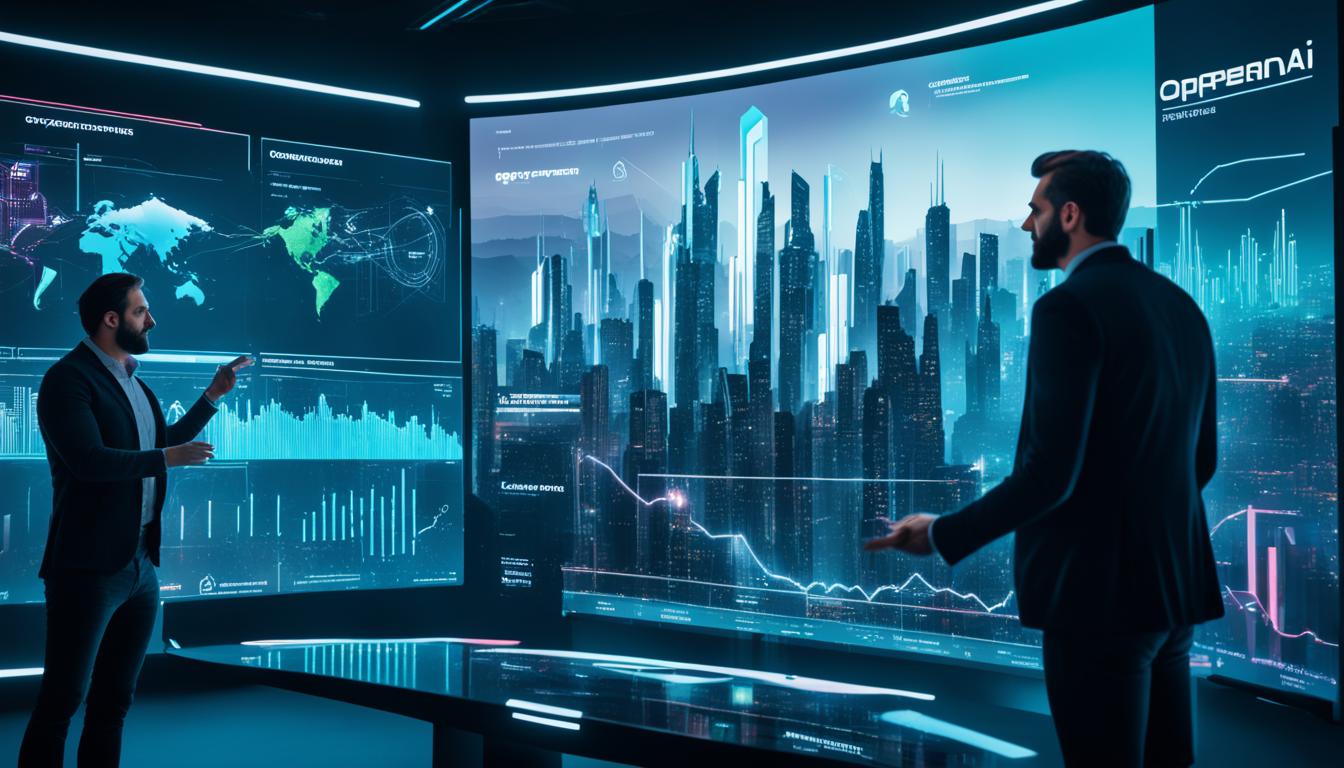As technology advances, it is increasingly evident that artificial intelligence is poised to transform many sectors of the workforce.
Positions such as data entry clerks, telemarketers, and factory workers are among the roles that experts predict could be taken over by AI in the near future.
The automation of tasks traditionally performed by humans raises questions about the future of work and the skills that will be valued in the workforce.
In a world where machines are increasingly capable, what implications does this shift hold for the job market and the way we approach career planning and skill development?
Key Takeaways
- Data entry clerks and telemarketers face AI automation threats, requiring skill adaptation for industry relevance.
- Manufacturing and retail see shifts towards robotics and mechatronics engineering roles due to automation.
- Transportation industry witnesses a transition to managing fleets of autonomous vehicles, enhancing road safety.
- AI revolutionizes the travel industry with predictive tools, personalized experiences, and efficient booking processes.
Data Entry Clerks
The role of data entry clerks is undergoing significant transformation in response to the increasing adoption of AI technologies in automating routine tasks. AI advancements have enabled AI tools to accurately extract and analyze data, reducing the need for manual data entry by clerks. Consequently, the projected job growth for data entry clerks is at a negative rate of -4%, indicating the impact of AI on this profession. In light of these changes, data entry clerks are urged to consider transitioning to roles in data science analysis to adapt to the evolving landscape influenced by AI.
Investing in acquiring data analysis skills is crucial for data entry clerks seeking to enhance their career prospects in the AI era. By upskilling in data analysis, clerks can position themselves for roles that require more sophisticated data interpretation and decision-making, which are less susceptible to automation. Embracing this shift towards data analysis not only future-proofs their careers but also opens doors to new opportunities in the data-driven economy shaped by AI technologies.
Telemarketers
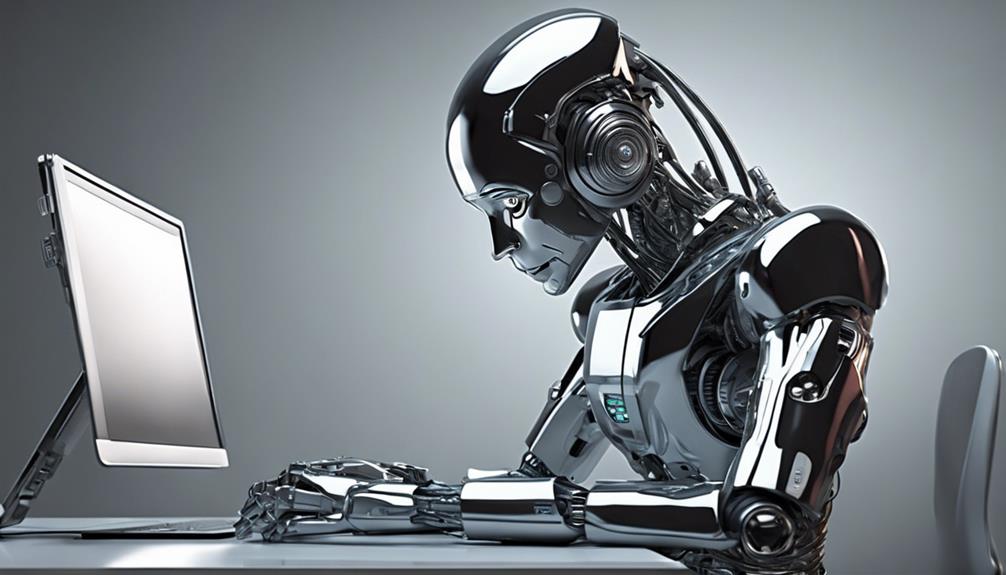
Facing the imminent threat of AI automation, telemarketers confront a rapidly changing landscape where AI tools are reshaping customer interactions. Language modeling AI tools and AI-powered chatbots have revolutionized the efficiency and cost-effectiveness of customer service, posing a significant challenge to traditional telemarketing roles. These advancements in AI technology enable chatbots to handle sales calls and customer queries effectively, often outperforming human telemarketers in speed and accuracy.
Telemarketers, who heavily rely on communication skills and persuasion tactics, are particularly at risk of AI replacement as AI tools continue to improve in handling customer interactions. The ability of AI to analyze customer data, personalize interactions, and provide round-the-clock service makes it a formidable competitor to human telemarketers. As AI automation becomes more prevalent in customer service sectors, telemarketers must adapt their skills and roles to remain relevant in a rapidly evolving industry.
Factory Workers
As automation increasingly permeates manufacturing processes, the role of factory workers is undergoing significant transformation. The integration of AI technology in factories is revolutionizing traditional manufacturing practices, leading to a reduced reliance on manual labor. Tasks that were once performed by factory workers are now being efficiently handled by automated systems. This shift is pushing factory workers towards roles that involve robotics maintenance or require skills in mechatronics engineering.
With the evolving manufacturing industry embracing automation at a rapid pace, the demand for individuals with expertise in mechatronics engineering is on the rise. To adapt to these changes and secure their positions in the industry, factory workers are encouraged to upskill by enrolling in courses that cover topics such as robotics maintenance and mechatronics engineering. By investing in their education and expanding their skill set, factory workers can navigate the evolving landscape of manufacturing and explore diverse career paths within this dynamic industry.
Cashiers
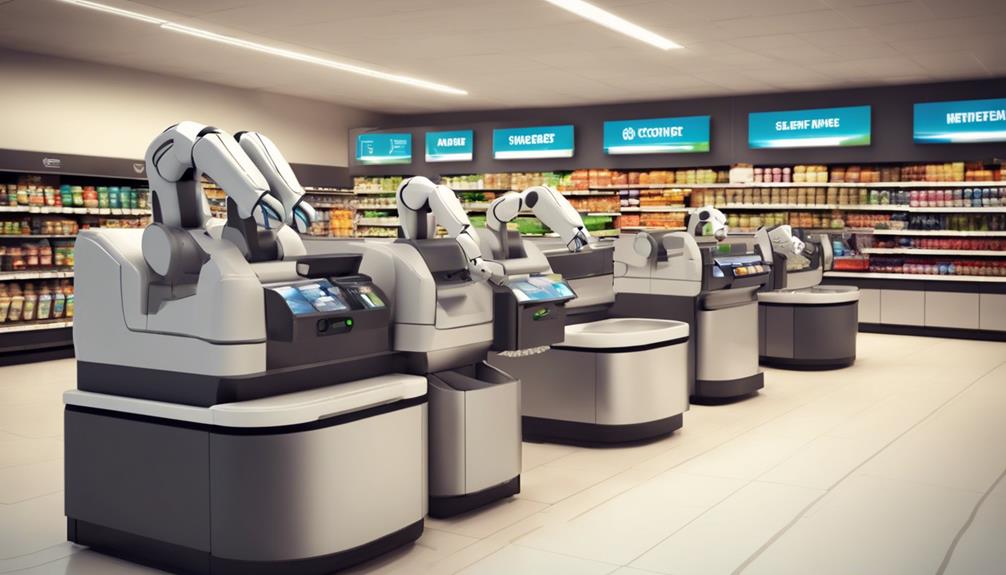
With the rise of AI advancements in retail industries, the role of cashiers is facing a significant transformation as automation takes over transaction and payment processing tasks. AI is increasingly being utilized to replace cashier roles, with self-checkout kiosks and mobile payment options becoming more prevalent in retail stores and supermarkets. These technological advancements are streamlining checkout processes and reducing the need for traditional cashier roles.
Cashiers, who often perform repetitive and routine tasks, are among the job roles most susceptible to AI replacement. The automation of cashiers through AI not only contributes to operational efficiency but also results in cost savings for businesses. As AI continues to advance, the role of cashiers is likely to evolve further, with automation playing a more prominent role in handling transactional and payment processing tasks in the retail sector.
Drivers
The advancement of autonomous vehicles, such as driverless cars and trucks, signals a shift in the transportation industry where AI technology can potentially replace human drivers.
This change has the potential to significantly impact traditional driving roles, leading to a decreased demand for human drivers in various sectors.
As AI-controlled vehicles strive to enhance road safety and efficiency, the future of driving careers may involve a transition towards overseeing and managing fleets of autonomous vehicles.
Driverless Cars
Amid advancements in AI technology, the landscape of the transportation industry is undergoing a substantial transformation with the impending integration of driverless cars. Autonomous vehicles, driven by AI technology, are poised to revolutionize transportation by enhancing road safety and efficiency. Companies like Tesla, Waymo, and Uber are at the forefront of developing these driverless technologies. However, this progress comes with a downside as the rise of driverless cars threatens traditional driving jobs, leading to potential job displacement in the transportation sector. The shift towards autonomous vehicles highlights the need for adapting to a future where human drivers may no longer be a central component in the transportation industry.
—
| AI Technology in Driverless Cars | Impact on Transportation Industry | Concerns |
|---|---|---|
| Driverless cars revolutionizing transportation | Enhanced road safety and efficiency | Job displacement in traditional driving roles |
Autonomous Vehicles
Autonomous vehicles are poised to redefine the landscape of transportation by significantly reducing the reliance on human drivers across various sectors. The rapid advancement of AI-driven technologies is making self-driving cars a viable alternative to human-operated vehicles.
Companies such as Tesla, Waymo, and Uber are heavily investing in the development of autonomous vehicle technology to bring about this transformation in the transportation industry. As the adoption of self-driving cars and trucks increases, there is a foreseeable reduction in the necessity for human drivers.
The integration of AI-powered autonomous vehicles is set to revolutionize how people and goods are transported, paving the way for a future where human drivers may no longer be the primary operators on the roads.
Travel Agents

AI-powered solutions have revolutionized the travel industry, offering efficient booking processes and personalized services. The impact of AI on travel agents is significant, with job roles evolving as technology streamlines trip planning and booking services.
This changing landscape prompts a reevaluation of the industry, encouraging travel agencies to adapt by exploring AI-powered tools to enhance competitiveness and customer experience.
AI Booking Efficiency
With advancements in artificial intelligence technology, the travel industry is witnessing a significant shift towards enhanced booking efficiency through AI-driven tools. AI-powered travel agents such as Google Flights utilize predictive tools to facilitate efficient flight booking. Chatbots and AI algorithms play a crucial role in enhancing trip planning and booking services, providing personalized experiences for travelers. Online travel platforms leverage AI to streamline the booking process and improve customer service. These AI-driven tools are gradually replacing traditional human travel agents, focusing on improving efficiency, accuracy, and overall customer satisfaction.
| AI Booking Efficiency | |
|---|---|
| Predictive Tools | Efficient Flight Booking |
| Chatbots | AI Algorithms |
| Personalized Experiences | Online Travel Platforms |
Impact on Industry
The integration of AI technologies in the travel industry is significantly impacting traditional travel agents, leading to shifts in how personalized services are provided to customers.
Key Points:
- Online travel platforms and AI algorithms are replacing traditional travel agents in providing personalized services.
- AI tools like Google Flights use predictive tools to assist customers in booking flights efficiently.
- Customers can now interact with AI-powered travel agents for trip planning and booking services.
- AI is revolutionizing the travel industry by improving efficiency and customization in travel services.
Changing Job Landscape
The evolving landscape in the travel industry is reshaping the traditional role of travel agents due to advancements in AI technology. AI advancements have led to a shift in job roles, with AI algorithms offering personalized services and efficient trip planning.
Platforms like Google Flights now provide predictive tools, enabling customers to make informed decisions independently. Interactions with AI-powered travel agents for booking services are reducing the reliance on traditional travel agents.
This transformation emphasizes the evolving roles within the industry, where efficiency and personalization are key. The impact of AI on the travel sector is evident, altering the dynamics of trip planning and booking processes, challenging the traditional functions of travel agents to adapt to the changing landscape.
Bank Tellers
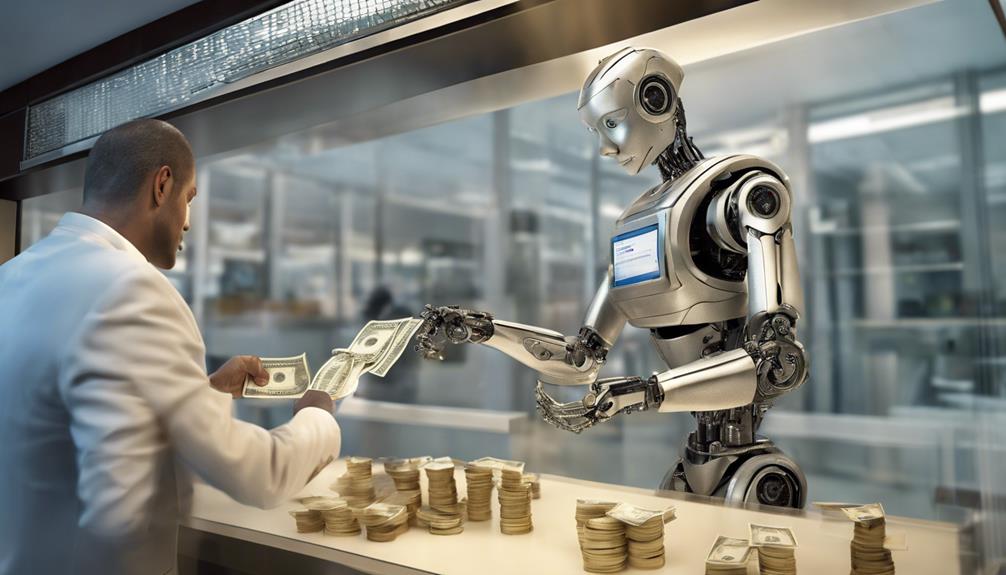
Experiencing a shift in the banking industry, AI is increasingly assuming the routine tasks and customer interactions traditionally handled by bank tellers. As automation technologies advance, the role of bank tellers is evolving.
Here are some key points to consider:
- Efficient Customer Service: AI is automating traditional bank teller roles by efficiently handling routine transactions and customer inquiries, providing quick and accurate service.
- Technological Integration: Chatbots and AI-powered systems are being integrated into banks to streamline customer interactions, reducing the need for human intervention in basic tasks.
- Reduction in Human Workforce: The rise of online banking platforms and self-service kiosks is diminishing the necessity for human bank tellers in routine operations, leading to potential job displacement.
- Human Value in Banking: While AI may replace certain aspects of bank teller roles, the human touch, personalized assistance, and the necessity for human oversight in complex financial matters continue to be highly valued in banking services.
Frequently Asked Questions
What Job Is Likely to Be Replaced by Ai?
In a landscape shaped by technological advancement, the imminent replacement of certain job roles by AI is a critical concern. Predictions suggest that positions involving routine tasks, such as data entry and repetitive functions, are most susceptible to automation.
Which Jobs AI Will Not Replace?
Jobs that require high levels of emotional intelligence, creativity, and critical thinking such as human resource managers, sales managers, marketing managers, public relations managers, chief executives, event planners, writers, software developers, editors, and graphic designers are less likely to be replaced by AI.
What Job Will Be Most Affected by Ai?
Professional roles in finance, law, and business management are highly vulnerable to AI disruption. As technology advances, AI can automate routine tasks, impacting jobs that rely on repetitive or data-driven functions. This shift necessitates upskilling to focus on tasks requiring human insight and decision-making.
What Jobs Will Be Gone by 2030?
By 2030, jobs with repetitive tasks and data analysis elements are at risk of being replaced by AI. Sectors like transportation, administrative, production, and services face the highest susceptibility to job loss due to the efficiency of artificial intelligence technologies.
Conclusion
In conclusion, as artificial intelligence continues to advance, certain job roles such as data entry clerks, telemarketers, factory workers, cashiers, drivers, travel agents, and bank tellers are predicted to be taken over by AI technology.
This shift in the job landscape can be likened to a wave sweeping over the workforce, reshaping traditional roles and necessitating adaptation to new challenges.
It is crucial for workers to remain informed and adaptable in order to thrive in this evolving environment.
